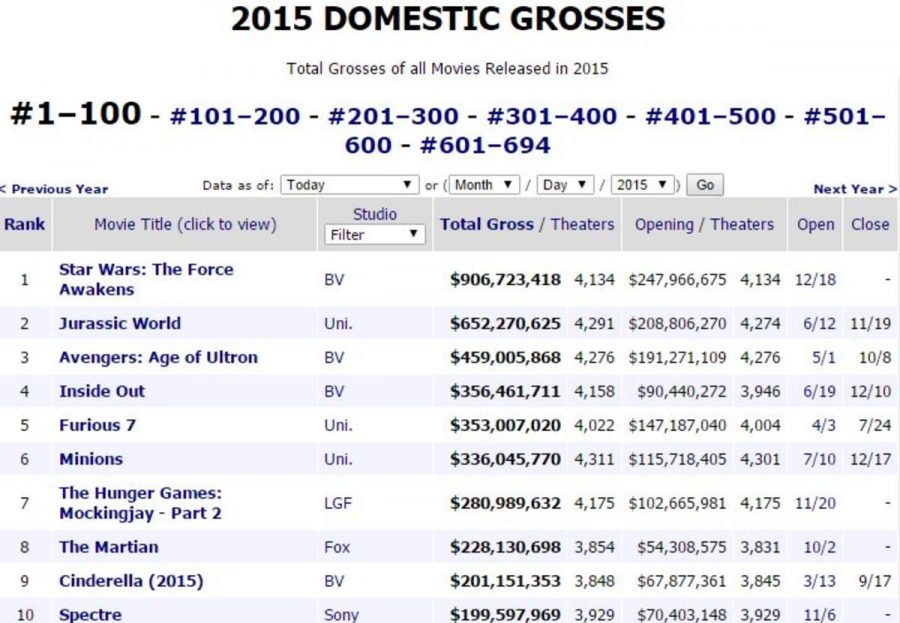Audiences stuck in comfort zone
Screenshot of boxofficemojo.com
Box Office Mojo displays the top ten highest grossing films of 2015. With the exception of “Inside Out”, the top earners were all sequels, reboots, and/or adaptations. While they could be good movies, the pattern reveals a lull in film originality.
February 12, 2016
The defining word for cinema in the 2010s is franchise. Six different superhero films are coming out through 2016 not to mention the endless sequels, reboots, and adaptations coming to the big screen this year. What happened to original ideas?
It is a challenge to find a movie out that is not based on an existing property. This is not always a bad thing, but it is making Hollywood a toxic environment for creativity.
Screenwriter Max Landis told Red Letter Media, “Internally, it’s getting harder and harder to find attention for movies that are ‘original’’ in as much as they’re not based on a Lego set, or a show from the 80’s, or something like that and almost every big studio-level job is turning into an assignment.”
Landis is right. Hollywood studios have created a new formula for what should be a successful movie and it boils down to one thing: name recognition. Familiarity is safe in the eyes of both executives and audiences.
In his 2015 recap, film reviewer Matthew Buck said, “In an age dominated by franchises and remakes of things for no discernible reason, [Point Break] it’s no surprise that the two biggest films of the year are resurrections of iconic but dormant franchises that are still so enormously popular that they were instant hits regardless of their quality…”
According to Box Office Mojo, nine out of the top ten highest grossing films of 2015 were based on existing properties. Pixar’s Inside Out was the sole exception.
What does this say about us as a movie-going audience? How much are we to blame for the general failure of original ideas in Hollywood? The studio system may be primarily responsible, but we are definitely complicit.
Landis continued, “There’s this fantasy that I encounter again and again when I venture outside of the entertainment industry where people assume it’s all one thing: ‘Your movie failed because you made a bad movie; your movie succeeded because you made a good movie.’”
Most people do not understand the difference between a good movie and a successful movie. Quentin Tarantino’s widely acclaimed The Hateful Eight made less money than the widely panned Terminator: Genisys for example.
How can we help breed more risk and creativity in Hollywood? Go see more risky and creative movies. Executives follow the money and answer to what the audience wants. Visit The Esquire and Mariemont Theatres for some great independent selections.







